Amid the looming risk that U.S. President-elect Donald Trump may pull the plug on Washington's support for Ukraine, Kyiv has begun to flirt with the option of nuclear deterrence.
The prospect of such a scenario was raised weeks earlier when President Volodymyr Zelensky in October said he had told Trump during a September meeting in New York City that Ukraine would either join NATO or develop nuclear weapons.
Zelensky claimed that Trump had heard him and said that "it was a fair argument."
He later walked back that statement, saying that Ukraine was not pursuing nuclear weapons.
However, Zelensky's statement prompted speculation on whether a Ukrainian nuclear weapons program is realistic from technological and political standpoints.
Experts say that Ukraine is capable of producing at least a primitive nuclear weapon within years, although it would require considerable investment.
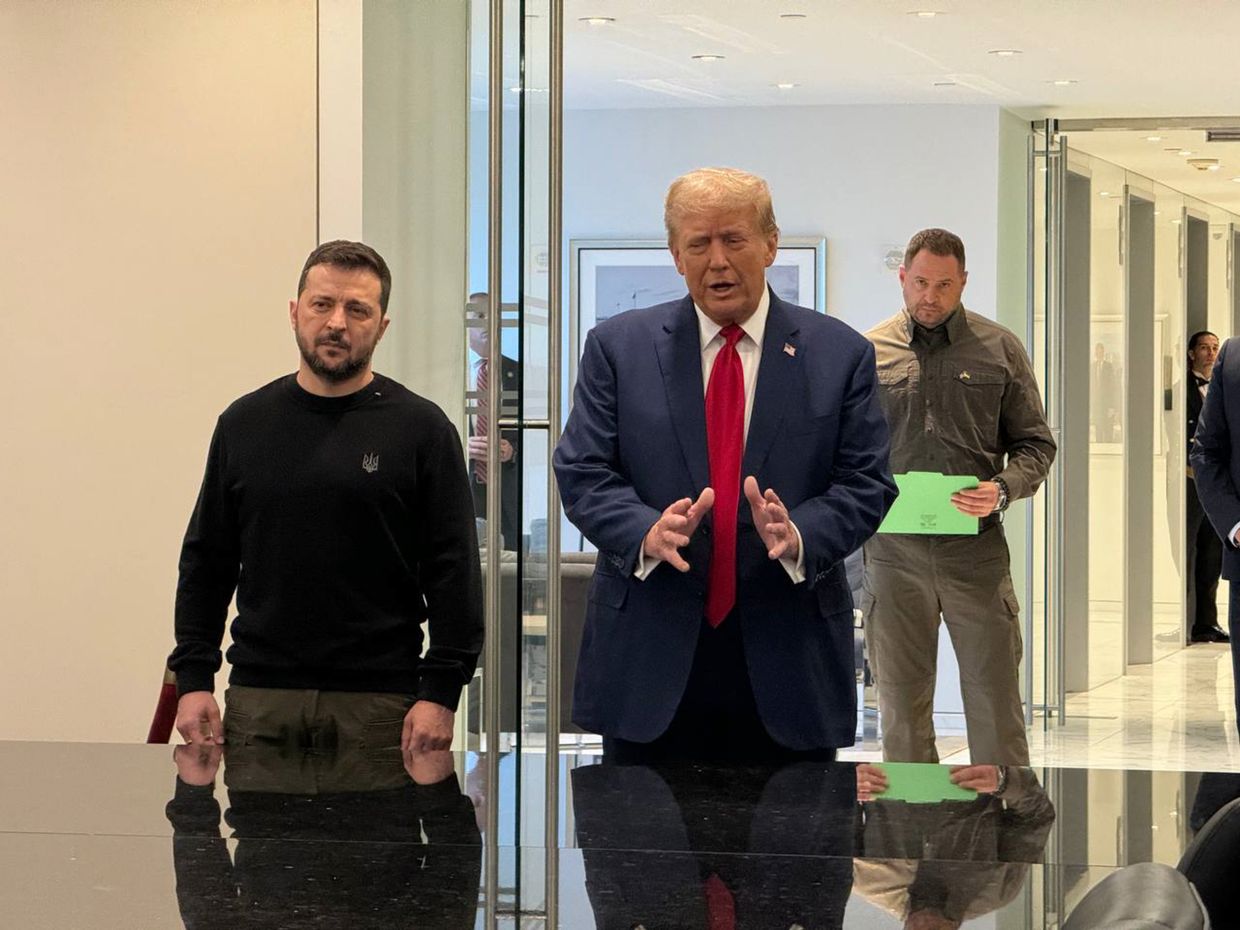
"I guess everyone's gonna get nukes. That should work out well," John Sipher, a retired member of the U.S. Central Intelligence Agency's Senior Intelligence Service, quipped in a Nov. 6 post on X, commenting on Trump's victory in the Nov. 5 presidential election.
Sipher, now a fellow at the Atlantic Council think tank, was referring to concerns that Trump's return to power could steer the U.S. on an isolationist path, leaving Western allies, including NATO members and Ukraine, pondering the need to defend themselves without U.S. backing.
Ukraine inherited the world's third-largest nuclear arsenal upon the collapse of the Soviet Union in 1991, though the warheads had been produced in the Russian part of the now-dissolved state. Kyiv surrendered them under the 1994 Budapest Memorandum in exchange for security assuarances from the U.S., U.K., and Russia.
Politically, Kyiv would face tremendous difficulties if it decided to produce nuclear weapons as a deterrent. It could trigger major backlashes from Western allies that Ukraine's Armed Forces heavily rely upon for conventional weaponry to fight against Russia's full-scale invasion, now in its third year.
"A nuclear weapon program would jeopardize the relationship with (Ukraine's) Western partners," Sascha Bruchmann, a military analyst at the London-based International Institute for Strategic Studies, told the Kyiv Independent.
"I cannot see any U.S. government that would support Ukrainian nuclear ambitions. Thus, Ukraine would gamble a lot of political and military support. The political, economic, and military costs are prohibitive."
In a closed-door meeting attended by the Kyiv Independent, top Ukrainian officials said that the political implications of such a step would be too costly.
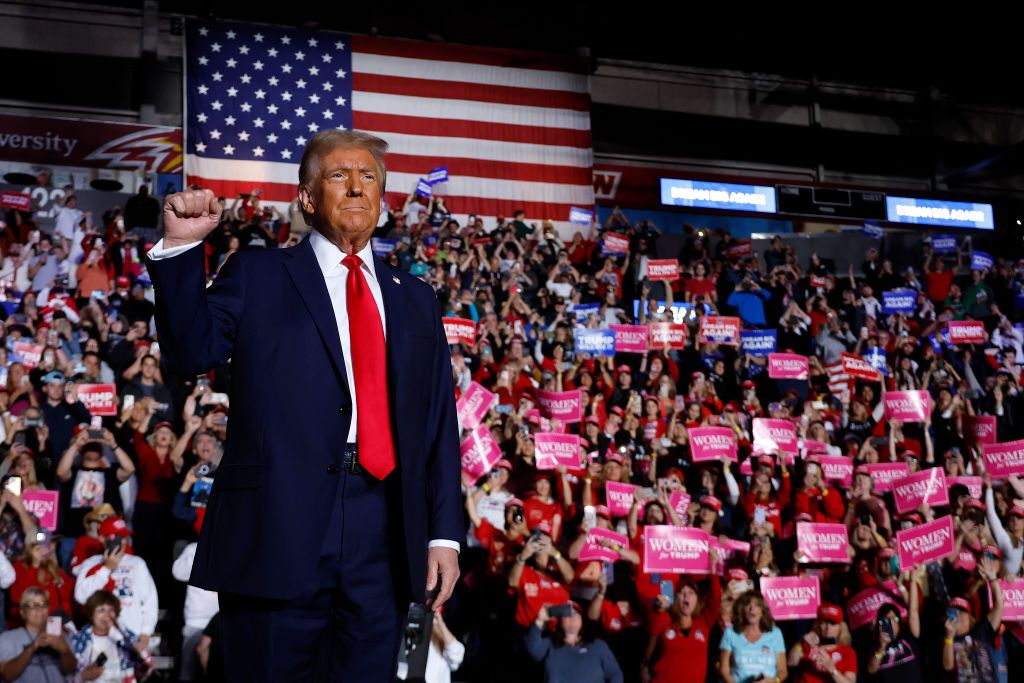
Ukraine's potential reasons for seeking nuclear deterrence
The Budapest Memorandum has come under fire in recent years because Russia openly violated it by invading Ukraine, and the U.S. and U.K. failed to guarantee Ukraine's security. However, they have provided massive amounts of weaponry to Kyiv, most after Russia's full-scale invasion kicked off in early 2022.
Calls for Ukraine to acquire nuclear weapons are a direct consequence of Russia's war and nuclear threats, analysts say.
"It has become obvious that earlier nuclear weapons were used as a tool of deterrence, but now it's an offensive tool," Claus Mathiesen, a lecturer at Denmark's Defense Academy and a former military attaché in Ukraine, told the Kyiv Independent.
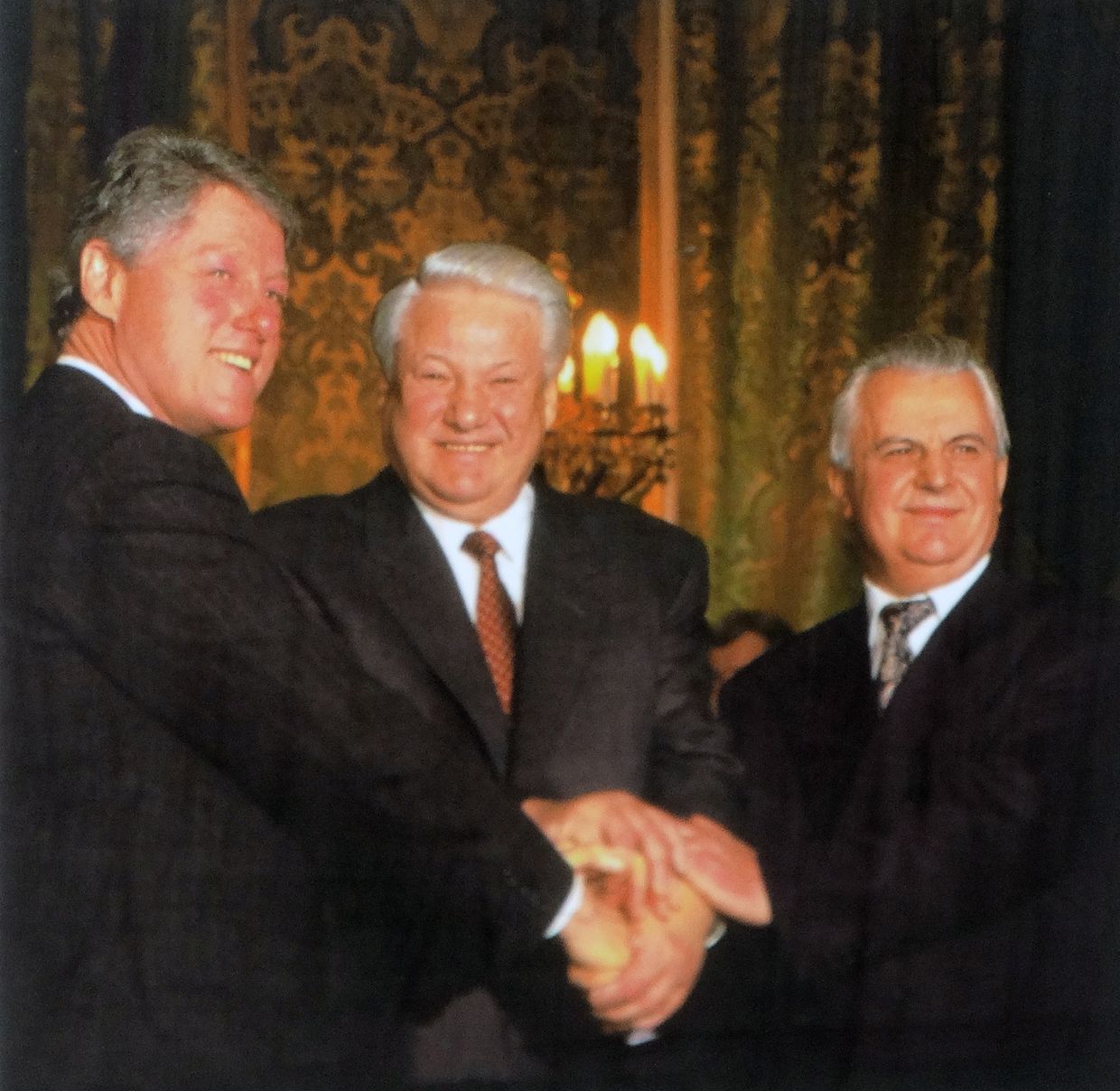
"Russia has taken about 100,000 square kilometers of Ukrainian territory and is threatening to use nuclear weapons against Ukraine if these territories are taken away from them. One possibility (for Ukraine) is counter-deterrence — acquiring nuclear arms on their own."
Jenny Mathers, a lecturer in international politics at the U.K.'s Aberystwyth University, said that Zelensky "expressed very well the reason why so many states have sought to acquire nuclear weapons."
"They are seen as the ultimate guarantor of security against a direct attack by more powerful states despite the fact that nuclear weapons are of little or no use on the battlefield and do not prevent the states that possess them from suffering military defeats at the hands of non-nuclear armed opponents," she told the Kyiv Independent.
Jyri Lavikainen, a nuclear deterrence expert at the Finnish Institute of International Affairs, also believes that Ukraine is "on solid ground when it argues that it needs nuclear deterrence to ensure its lasting security."
"Russia's decision to attack Ukraine and resort to nuclear coercion starting from the first day of the invasion has revealed the dangers of being left outside the nuclear umbrella," he told the Kyiv Independent.
"Nuclear deterrence is needed to counter nuclear coercion. However, the best chance for Ukraine to gain the benefits of nuclear deterrence is to be admitted to NATO as soon as possible."
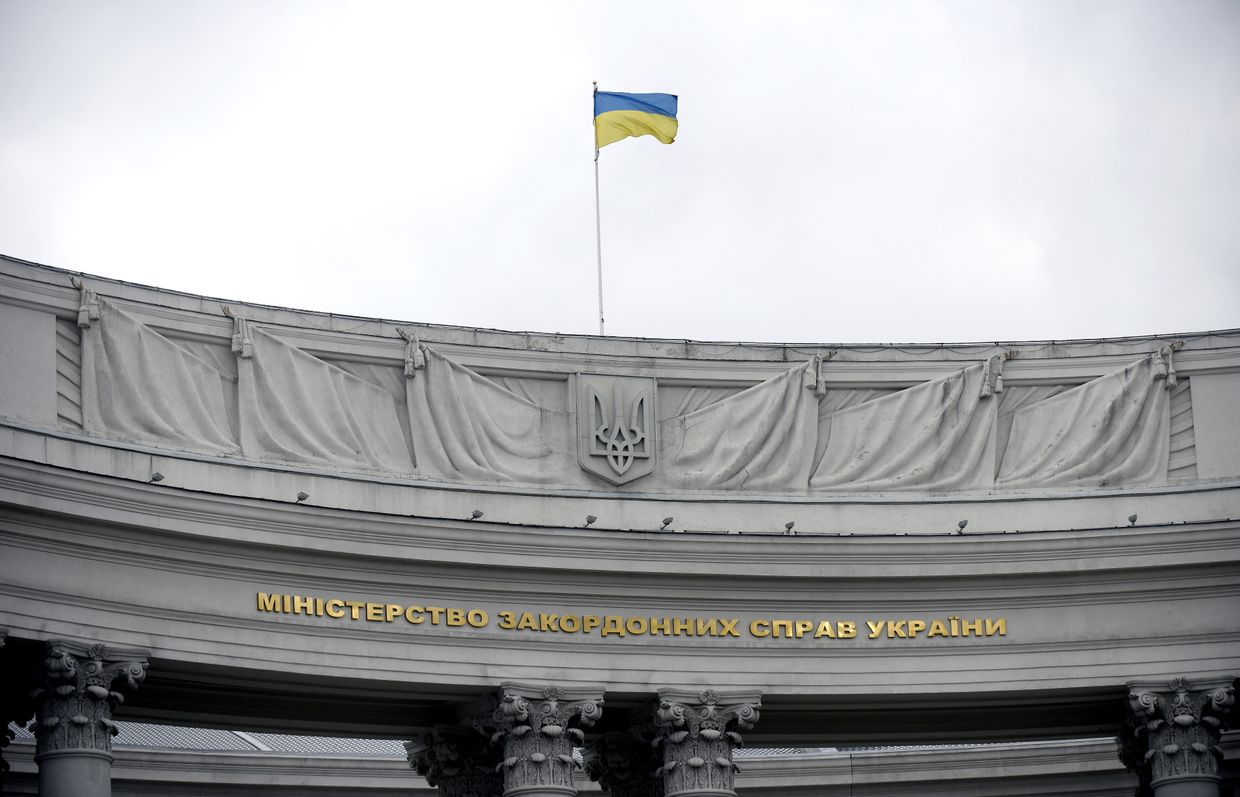
Ukraine's Soviet nuclear arsenal and inherited capabilities
Although Ukraine does not currently possess nuclear weapons, it is no novice in the nuclear industry.
In the Soviet period, the Pivdenmash factory in the Ukrainian city of Dnipro produced ballistic missiles capable of carrying nuclear warheads.
Although currently Ukraine does not produce nuclear-capable missiles, it would be easy for Kyiv to make them, a nuclear weapons expert told the Kyiv Independent. He spoke on condition of anonymity because he did not want to be seen as endorsing such a program.
The Prydniprovsky Chemical Plant in the city of Kamianske in Dnipropetrovsk Oblast processed uranium ore for the Soviet nuclear program, preparing yellowcake, an intermediate step in the processing of uranium ore.
There is also a uranium deposit in Zhovti Vody in Dnipropetrovsk Oblast.
Moreover, Ukraine has four nuclear power plants in the Zaporizhzhia, Rivne, Khmelnytskyi, and Mykolayiv oblasts. The Zaporizhzhia plant is currently under Russian occupation.
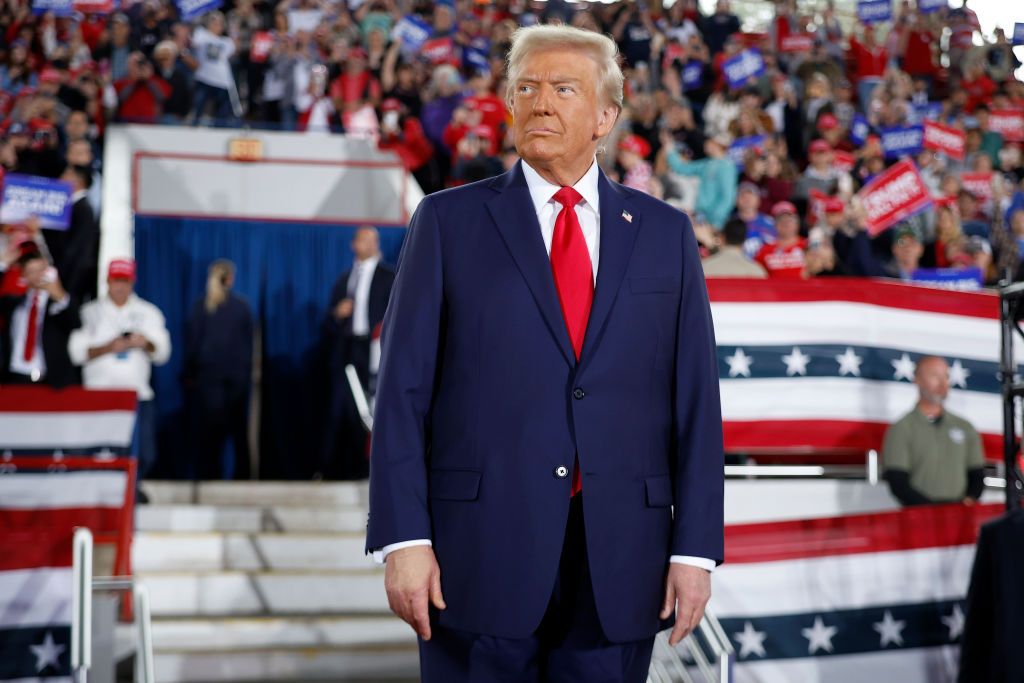
Can Ukraine produce a nuclear bomb?
Experts say that, from a technological perspective, Ukraine is capable of making a nuclear bomb.
Robert Kelley, an engineer with over 35 years of experience in the U.S. Department of Energy's nuclear weapons complex, said that it would be possible for Ukraine to create a primitive uranium fission bomb within five years.
"It's a fairly simple thing to do in the 21st century," he told the Kyiv Independent.
It would be much more difficult for Ukraine to build a plutonium fission bomb, and it would be harder to hide, Kelley argued. It would take five to 10 years to build a plutonium reactor, he added.
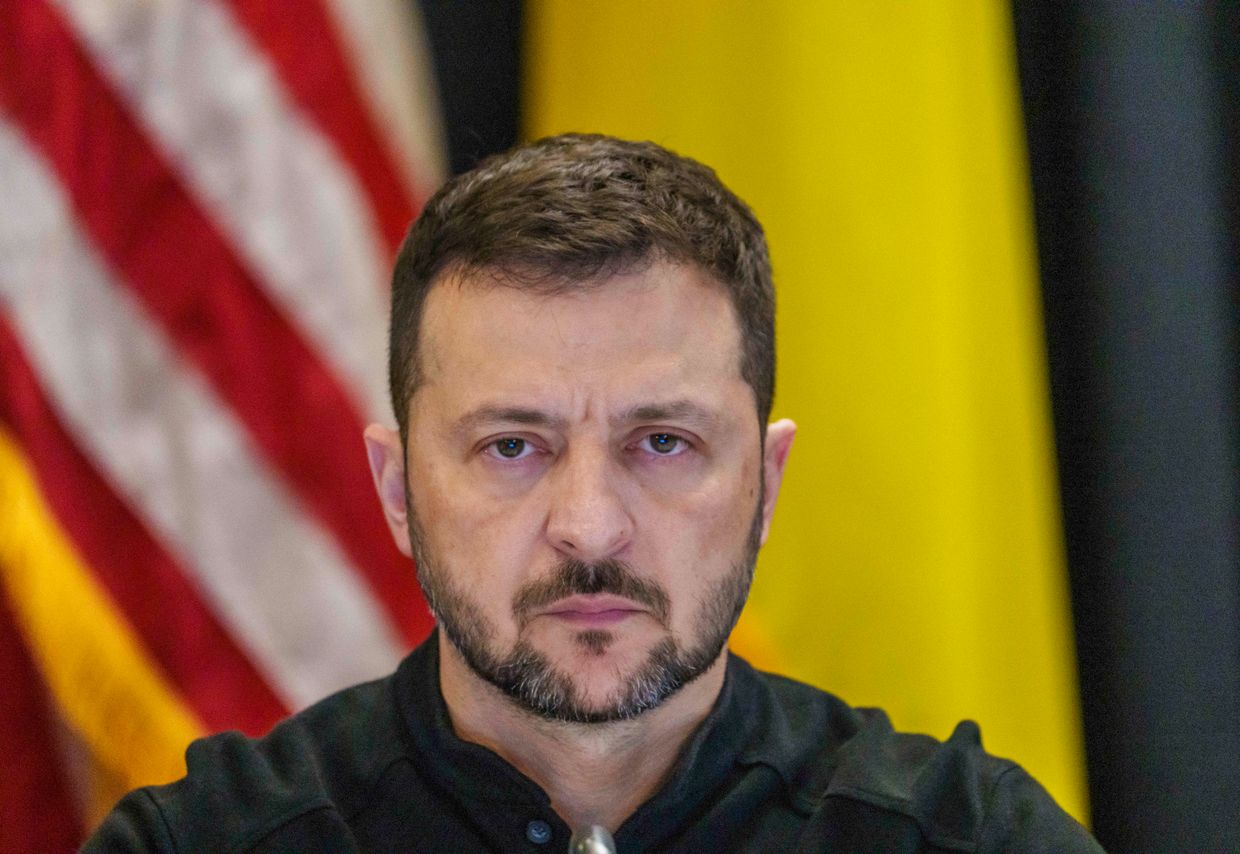
In contrast with a fission bomb, a "hydrogen bomb would be incredibly complicated," Kelley said. "No way in the world would (Ukraine) be able to create it," he added.
Kelley also said that Ukraine might be able to create a crude nuclear device without assistance from other countries. For a more complex nuclear weapon, it would have to buy technology abroad, he added.
A Russian nuclear expert and a Ukrainian nuclear expert both confirmed to the Kyiv Independent that Ukraine is capable of producing a nuclear bomb, adding that it would likely take years. The Russian expert was speaking on the condition of anonymity for fear of reprisals, and the Ukrainian expert was not authorized to talk to the press about the issue.
"Ukraine would certainly have the knowhow and resources to become a nuclear weapons state if it made the political decision to do so," Lavikainen said. "The technology required is not out of reach for many countries, and certainly not for Ukraine since it housed crucial elements of the Soviet nuclear weapons complex when it was still part of the USSR.
"Ukraine could develop both nuclear warheads and carrier vehicles since it possesses the necessary military industry, uranium deposits, and nuclear energy sector," Lavikainen continued.
Nikolai Sokov, a senior fellow at the Vienna Center for Disarmament and Non-Proliferation, was more cautious, saying that creating a nuclear bomb "is not impossible" for Ukraine. But, it "will take years, a lot of money, and most likely external support, at least on the equipment side."
"Ukraine does not have the industrial capacity to manufacture and maintain a nuclear arsenal; it does not have fissile materials, enrichment capacity, plutonium production, most of the elements that go into a nuclear weapon capability," he added.
Liviu Horovitz, a nuclear deterrence specialist at the German Institute for International and Security Affairs, also said that Ukraine faces challenges if it decides to create a nuclear bomb.
"Ukraine surely has the scientific prerequisites for a nuclear weapons program," but "acquiring the necessary fissile materials is neither cheap nor fast nor very easy to do in secret," he added.
Horovitz said that such a nuclear weapons program could cost billions of dollars.
The nuclear weapons expert who spoke on condition of anonymity said that the most primitive nuclear bomb program focused on uranium centrifuges could cost around $100 million. A plutonium bomb program would cost around $1 billion, he added.
Russian airstrikes as a threat to Ukrainian nuclear facilities
Another challenge is that Russia, which has a vast arsenal of both conventional missiles and ones with nuclear warheads, could strike any Ukrainian facilities that develop nuclear weapons.
"It is difficult to envision that (Ukraine) could carry out the program successfully as long as the war continues," Lavikainen said.
"Russia would highly likely prioritize strikes on the relevant facilities as soon as it could identify them. Its campaign to disrupt the nuclear program would highly likely also include sabotage and assassinations," he added.
Horovitz, citing Iran's efforts over the past three decades, said that "it is rather risky to acquire nuclear weapons when your adversary has both conventional and nuclear options to preempt such proliferation."
Iran has been trying to develop nuclear weapons since the 1950s but has not yet produced an atomic bomb.
Five Iranian nuclear scientists were killed between 2010 and 2020, and explosions occurred at Iranian nuclear facilities in 2020. Iran blamed the killings and explosions on Israel, which has neither denied nor confirmed its involvement.
In 1981, Israel also destroyed an unfinished nuclear reactor built by dictator Saddam Hussein in Iraq.
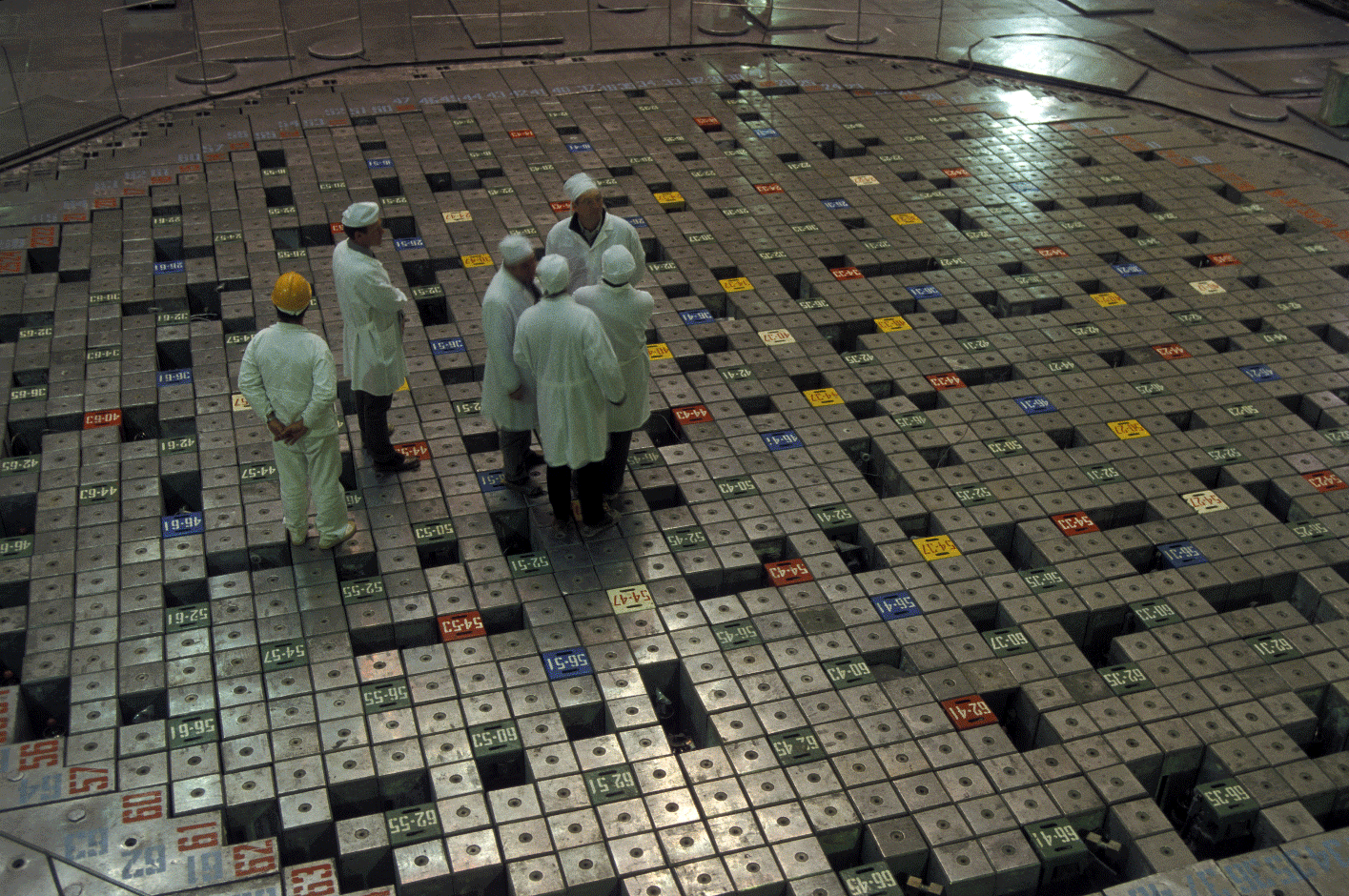
Building nuclear bombs could alienate allies
The main obstacle, however, is the political implications of a Ukrainian nuclear program.
Ukraine is a signatory of the Treaty on the Non-Proliferation of Nuclear Weapons, and its withdrawal from the treaty would cause a backlash from both the U.S. and Ukraine's European allies, analysts say.
Lavikainen said, "The nuclear non-proliferation treaty is a cornerstone of the nuclear policy of the U.S. and every other partner of Ukraine."
"Ukraine's partners would, therefore, likely pressure it to stop the program once it was discovered" and would "have great leverage in doing so because Ukraine's defensive efforts are dependent on foreign military aid," he added.
Lynn Rusten, vice president of the U.S.-based Nuclear Threat Initiative's Global Nuclear Policy Program, shares this assessment.
"If Ukraine were to pursue nuclear weapons, the result would be a net loss for Ukrainian security," she said.
"The United States, the West and the majority of the international community would oppose Ukraine — or any other non-nuclear weapon state — seeking nuclear weapons and would respond by isolating Ukraine diplomatically and economically."
Analysts also say that Western partners are likely to interpret a Ukrainian nuclear program as a major escalation of the war.
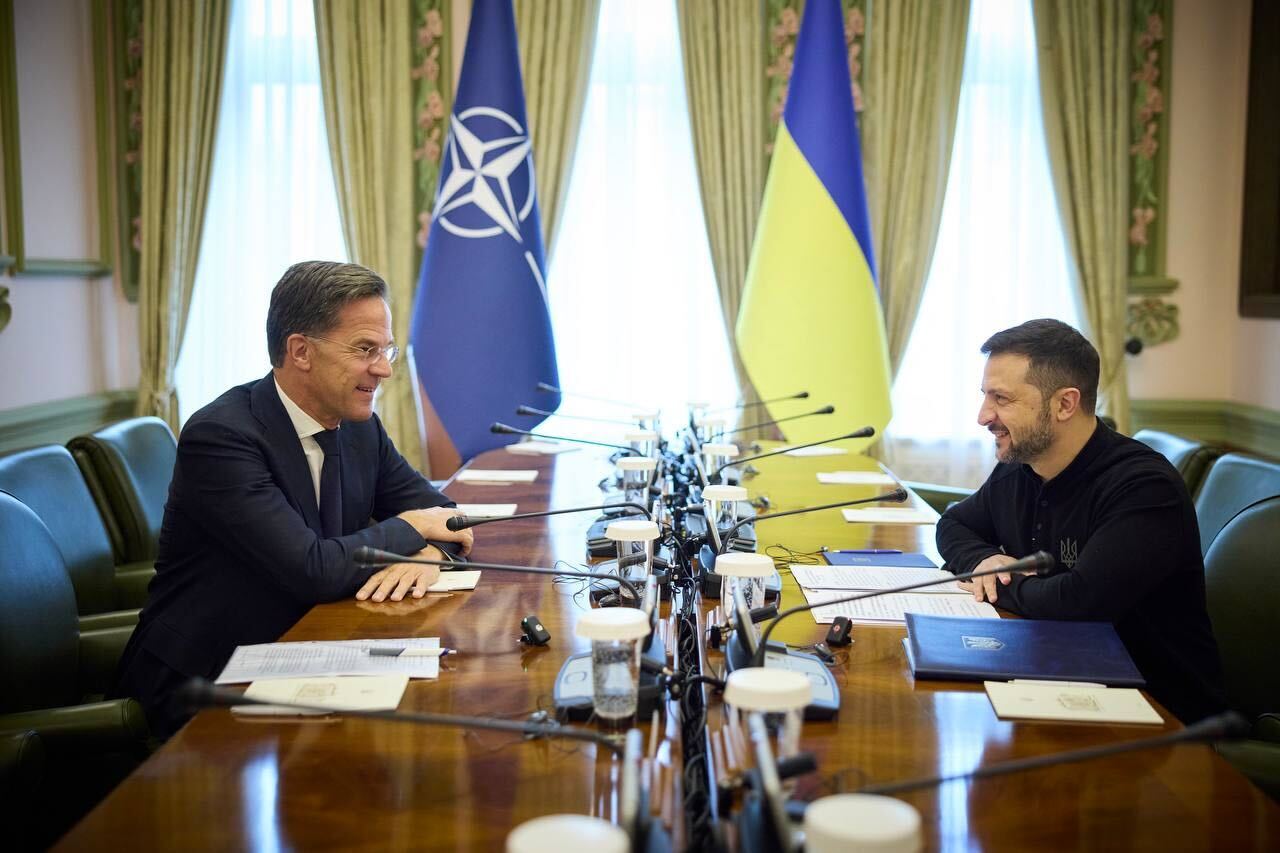
"Ukraine's supporters in the West would be dismayed, seeing the step as leading to further instability and increasing the risk of escalating the war to even greater levels of destruction, whether within Ukraine or also including NATO member states," Mathers said.
"It would, in all likelihood, create (or exacerbate) tensions between Kyiv and its allies. Unless Ukraine were able to acquire nuclear weapons instantly and present the world (and Russia) with a fait accompli, then the process of developing nuclear weapons is likely to make Ukraine even less secure in the short term."
However, it is unclear how strong the Western partners' reaction would be and whether they would halt military aid and impose sanctions on Kyiv.
Mathiesen said that he doubted that Western allies would stop military aid to Ukraine if it started developing nuclear weapons because it would go against public opinion.
"So much has been invested in supporting Ukraine that I think it would be very difficult for them to stop assistance," he added.













